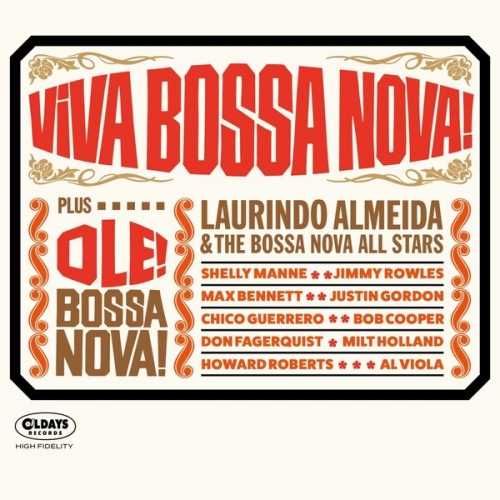Feodor Chaliapin - Russian Music, Vol. 2 (1993)
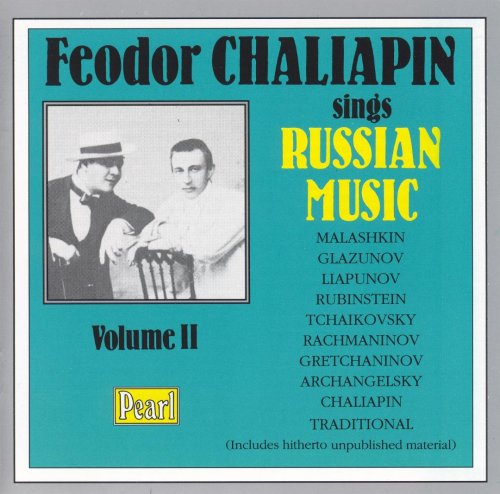
Artist: Feodor Chaliapin
Title: Russian Music, Vol. 2
Year Of Release: 1993
Label: Pearl
Genre: Classical, Vocal
Quality: FLAC (tracks)
Total Time: 01:02:13
Total Size: 300 mb
WebSite: Album Preview
Tracklist: Title: Russian Music, Vol. 2
Year Of Release: 1993
Label: Pearl
Genre: Classical, Vocal
Quality: FLAC (tracks)
Total Time: 01:02:13
Total Size: 300 mb
WebSite: Album Preview
01. Oh, Could I in Song Tell My Sorrow for voice & piano (or orchestra)
02. Sadko, opera in 3 (or 5) acts: Song of the Viking Guest
03. Work(s): [Unspecified version] The Prophet, Op. 49/2
The Demon (Der Dämon), opera:
04. Do not weep, child
05. Through the ocean of the air
06. Gelb rollt mir zu FÃ1/4ssen, song for voice & piano (Persian Songs No. 9; 'Persian Love Song'), Op. 34/9
07. Der Gefangene (The Prisoner; 'Im Kerker gefangen'), song for voice & piano, Op. 78/6
08. The Nightingale, song for voice & piano, Op. 60/4
09. I bless you, forests ('The Pilgrim's Song'), song for voice & piano, Op. 47/5
10. The Tale of Tsar Ivan the Terrible, for vocal quartet, Op. 48/4
11. Bacchic Song, for voice & piano, Op. 27/1
12. Aleko, opera, TN ii/70: The moon is high in the sky
13. The Creed
14. Two-Fold Litany, for chorus, Op. 79/6: Gloria
15. Dark eyes ('Ochi chornye,' 'Black Eyes'), folk song
16. Eh, Vanka (Crazy-headed John)
17. Song of the Volga Boatmen
Feodor Chaliapin is perhaps the most legendary operatic bass in history. Possessed of a large and beautiful voice, he devoted himself to all aspects of his art -- most significantly his dramatic portrayals -- at a time when such things were not at all typical of singers. Chaliapin was born the son of Russian peasants and was apprenticed to a cobbler at the age of 10. However, a brief engagement with a touring opera and a fortuitous meeting with his first voice teacher, Dimitri Usatov (both during his teen years), alerted the young singer to the true extent of his musical potential. Usatov was, in fact, so impressed with the young man that he agreed to teach him free of charge.
In 1894, Chaliapin sang in St. Petersburg and soon was accepted at the Imperial Opera. In 1896, he sang with a private opera company in Moscow, making his debut as Ivan Susanin in Glinka's A Life for the Tsar, for which he received excellent reviews. At the same time, he gave many successful solo concerts. His first appearance outside Russia was in Boito's Mefistofele at Teatro alla Scala in 1901. He sang nearly every season at Monte Carlo from 1905 to 1937. His first role there was King Philip in Don Carlo, and there he created the role of Don Quixote in Massenet's setting of that tale. In 1933 he starred in a film about the same idealistic knight (this project was ultimately left incomplete, but it resulted in the fine Don Quichotte songs of both Maurice Ravel and Jacques Ibert).
In 1907, the bass made his Metropolitan Opera debut in Boito's Mefistofele, and later that season sang both Gounod's Faust (Mefistophele) and Mozart's Don Giovanni (Leporello). His return to the United States was delayed until 1921 when he sang the title role in Boris Godunov. He sang with the Metropolitan Opera until 1929.
In 1908, Chaliapin began his close association with Diaghilev in Paris, where many famous productions of Russian operas were staged. He sang several Russian roles at Covent Garden, London, in 1913. In 1914, he returned to Russia and stayed until after World War I and the Great Revolution. In 1922, he immigrated to France, which remained his home for the remainder of his life.
Chaliapin appeared in nearly all of the great opera houses of Europe, as well as those of England and the United States; in 1935-1936 he made a world tour, including performances in China and Japan.
Chaliapin was a large man with great dramatic flair, and he could portray any type of character. He was a master of makeup, and he used this skill to help create his characters. His voice was wide ranging, allowing him to sing baritone roles like Eugene Onegin as well as bass roles like Oroveso. In his recitals, he never revealed what he would sing; the printed program would simply say "Selections to be announced."
When he immigrated to Paris, he fell out of favor with the Russian government, but his native country's official posture toward him warmed when it became apparent that he was bringing Russian opera to people all over the world. Besides the Russian operas already mentioned, Chaliapin also sang Khovanshchina, Prince Igor, Dargomyzhsky's Rusalka, Sadko, Mozart and Salieri (which he premiered), Rubinstein's The Demon, Serov's Judith, and Gretchaninov's Dobrinya Nikitich. His art is preserved on his many recordings made between 1901 and 1935, which document his wide-ranging repertoire. Without his performances of Boris Godunov, the opera would probably not have had the enduring popularity that it has subsequently enjoyed.
In 1894, Chaliapin sang in St. Petersburg and soon was accepted at the Imperial Opera. In 1896, he sang with a private opera company in Moscow, making his debut as Ivan Susanin in Glinka's A Life for the Tsar, for which he received excellent reviews. At the same time, he gave many successful solo concerts. His first appearance outside Russia was in Boito's Mefistofele at Teatro alla Scala in 1901. He sang nearly every season at Monte Carlo from 1905 to 1937. His first role there was King Philip in Don Carlo, and there he created the role of Don Quixote in Massenet's setting of that tale. In 1933 he starred in a film about the same idealistic knight (this project was ultimately left incomplete, but it resulted in the fine Don Quichotte songs of both Maurice Ravel and Jacques Ibert).
In 1907, the bass made his Metropolitan Opera debut in Boito's Mefistofele, and later that season sang both Gounod's Faust (Mefistophele) and Mozart's Don Giovanni (Leporello). His return to the United States was delayed until 1921 when he sang the title role in Boris Godunov. He sang with the Metropolitan Opera until 1929.
In 1908, Chaliapin began his close association with Diaghilev in Paris, where many famous productions of Russian operas were staged. He sang several Russian roles at Covent Garden, London, in 1913. In 1914, he returned to Russia and stayed until after World War I and the Great Revolution. In 1922, he immigrated to France, which remained his home for the remainder of his life.
Chaliapin appeared in nearly all of the great opera houses of Europe, as well as those of England and the United States; in 1935-1936 he made a world tour, including performances in China and Japan.
Chaliapin was a large man with great dramatic flair, and he could portray any type of character. He was a master of makeup, and he used this skill to help create his characters. His voice was wide ranging, allowing him to sing baritone roles like Eugene Onegin as well as bass roles like Oroveso. In his recitals, he never revealed what he would sing; the printed program would simply say "Selections to be announced."
When he immigrated to Paris, he fell out of favor with the Russian government, but his native country's official posture toward him warmed when it became apparent that he was bringing Russian opera to people all over the world. Besides the Russian operas already mentioned, Chaliapin also sang Khovanshchina, Prince Igor, Dargomyzhsky's Rusalka, Sadko, Mozart and Salieri (which he premiered), Rubinstein's The Demon, Serov's Judith, and Gretchaninov's Dobrinya Nikitich. His art is preserved on his many recordings made between 1901 and 1935, which document his wide-ranging repertoire. Without his performances of Boris Godunov, the opera would probably not have had the enduring popularity that it has subsequently enjoyed.
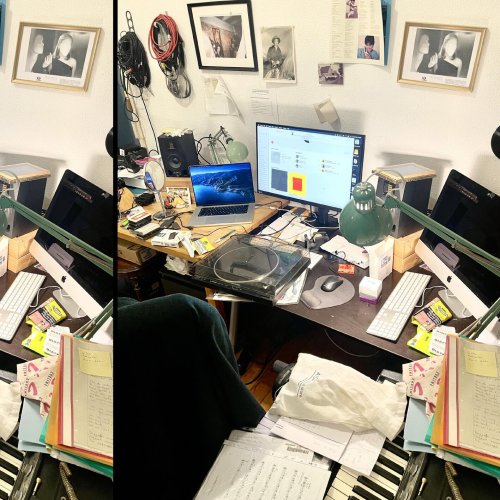
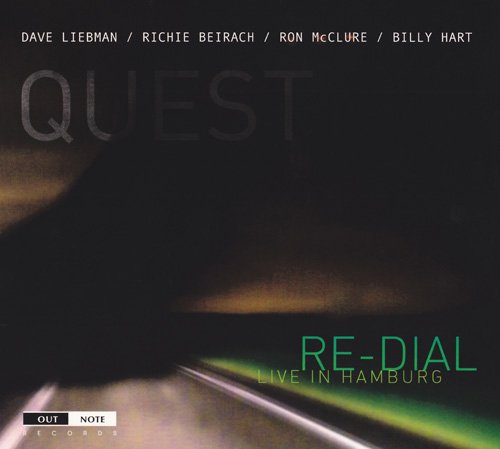

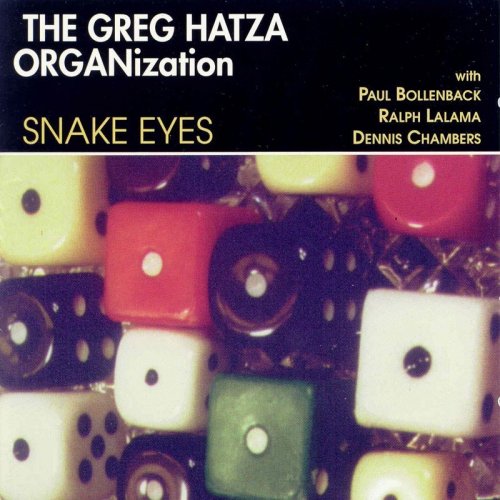
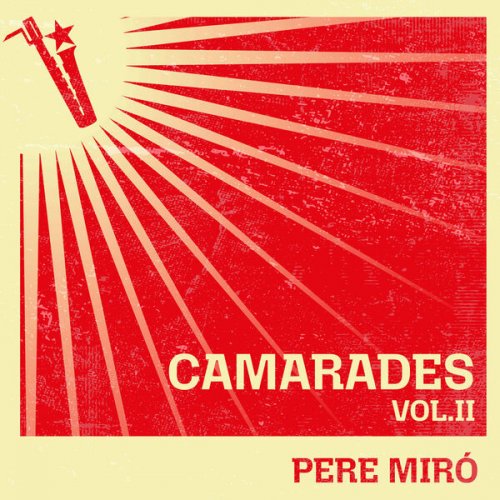
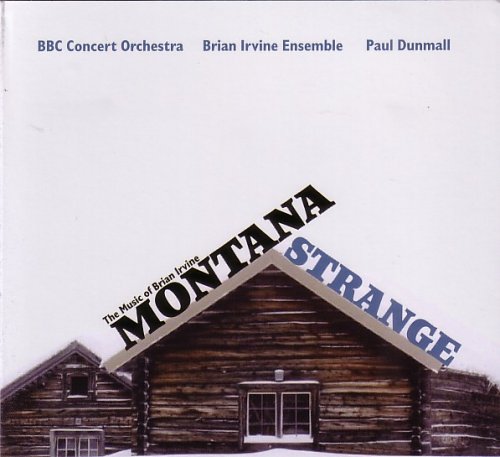
![Ex Novo Ensemble - OSVALDO COLUCCINO: Emblema (2018) [Hi-Res] Ex Novo Ensemble - OSVALDO COLUCCINO: Emblema (2018) [Hi-Res]](https://img.israbox.com/img/2026-02/22/ot6pocjri3hisq06iz4768yl5.jpg)

